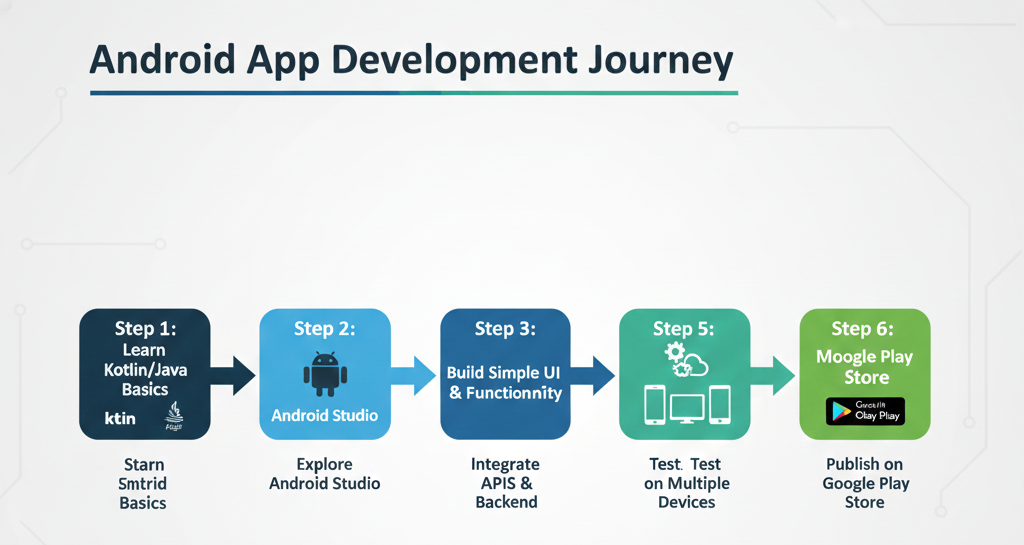In a world where smartphones have become extensions of ourselves, Android apps drive the digital experience for billions of users globally. From messaging to shopping, gaming, and productivity, Android applications are everywhere. If you’ve ever wondered how these apps come to life or how you can create your own, you’re in the right place.
Android app development is the art and science of building applications for devices running on the Android operating system, powered by Google. It’s a skill that opens doors to endless career opportunities, freelance possibilities, and even entrepreneurship.
Understanding Android App Development
Android app development is more than just coding; it’s about creating engaging experiences for users. Developers use languages like Java and Kotlin, leveraging tools like Android Studio to design, build, and deploy apps.
Here’s a simple hierarchical diagram of the Android App Development ecosystem:
| Layer | Description |
| User Interface (UI) | The visual and interactive components of the app. |
| Application Logic | The core functionality, handling user actions and business logic. |
| Data Layer | Manages databases, local storage, and remote APIs. |
| System Services | Access to device hardware (camera, sensors, GPS) and OS features. |
This hierarchy shows that Android development is a multi-layered process, combining creativity, logic, and technical expertise.
Why Learn Android Development?
Learning Android development is a strategic choice for anyone entering the tech world. Here’s why:
- Huge Market Reach: Android powers more than 70% of smartphones worldwide. Your apps can reach billions.
- Diverse Career Opportunities: Roles include Android Developer, Mobile Solutions Architect, UI/UX Designer for mobile, and even Product Manager.
- Creative Freedom: Unlike some platforms, Android allows you to experiment with unique app concepts, animations, and hardware integrations.
- Open-Source Advantage: Developers can tap into a rich ecosystem of libraries, frameworks, and community support.
Tools and Skills You Need
To start your Android journey, focus on:
- Languages: Kotlin (modern, official) and Java (widely used).
- IDE: Android Studio for coding, debugging, and testing.
- Version Control: Git/GitHub to manage your projects.
- UI/UX Principles: Understand layouts, navigation, and user engagement.
- APIs & Backend: Connect your app to databases and cloud services for dynamic functionality.
CuriosityTech.in – Your Learning Companion
At CuriosityTech.in, we don’t just teach coding; we guide you from concept to deployment, blending technical learning with practical projects. Students gain real-world exposure, mentorship, and continuous feedback. Whether you want to build your first calculator app or a full-fledged e-commerce platform, CuriosityTech.in provides the tools, resources, and community to make it happen.
Imagine designing an app that uses the camera, interacts with an API, and stores user data—all while learning best coding practices. That’s the kind of hands-on experience CuriosityTech.in emphasizes.
Infographic Suggestion

This visual roadmap helps beginners see the progression clearly and motivates continuous learning.
Conclusion
Android app development is more than just a technical skill—it’s a gateway to innovative problem-solving, creative expression, and professional growth. Starting with small projects, experimenting, and learning from experienced mentors at CuriosityTech.in can transform a beginner into a confident Android developer.
Your journey in mobile development begins today. Embrace curiosity, practice consistently, and watch your ideas evolve into apps that people love.



